Archive for March, 2014
-
Bed Bath & Beyond Warns for Q4
Eddy Elfenbein, March 7th, 2014 at 5:14 pmBad news from Bed Bath & Beyond ($BBBY).
After the closing bell, the company said it sees fiscal Q4 EPS coming in between $1.57 and $1.61. That’s below their previous forecast of $1.60 to $1.67. In January, they had lowered their original EPS forecast which was for $1.70 to $1.77.
BBBY’s Q4 ended on March 1, and the earnings report comes out on April 9. They estimate that bad weather knocked six to seven cents per share off the bottom line.
The impact of the disruptive weather included 464 times a store was closed for a full day and 1,923 times that a store was closed for a partial day. For the fiscal quarter, the estimated resulting impact due to the disruptive weather on comparable store sales was in the range of 2.0% to 2.5%. The estimated impact on net earnings per diluted share for the quarter was approximately $.06 to $.07.
The Company’s comparable store sales for the fiscal fourth quarter increased by approximately 1.7% as compared with its previous model of an increase of approximately 2.0% to 4.0%. Although it is early in the process of its financial close, the Company now estimates net earnings per diluted share of approximately $1.57 to $1.61 for the quarter as compared with its previous model of $1.60 to $1.67.
Steven H. Temares, Chief Executive Officer and Member of the Board of Directors of Bed Bath & Beyond Inc. stated, “Despite the weather related challenges, we are pleased with our quarter. Absent the disruptive weather, we believe we would have been comfortably within our sales and net earnings per share ranges of our model. Our store associates continue to perform admirably and we thank each of them for their extraordinary effort. We continue to make excellent progress on our omnichannel initiatives and stay on course for the execution of our long term strategic plan.”
-
The Last Five Star: GA Omar Bradley
Eddy Elfenbein, March 7th, 2014 at 12:27 pmHere’s a remarkable video. From 1981, this is 87 year-old General of the Army Omar Bradley speaking only a few weeks before he died. He was the last American five-star general. According to regulations, five stars are always on active duty.
Bradley was loved by his men. Even at 87 you can sense his decency and humility. (By the way, I looked up the proper abbreviation for a General of the Army. It’s GA.)
-
Minimum Wage War
Eddy Elfenbein, March 7th, 2014 at 11:04 amAt InvestorPlace, Jeff Reeves breaks down the pros and cons of a minimum wage hike.
-
February NFP = 175,000
Eddy Elfenbein, March 7th, 2014 at 10:36 amThe jobs report is out. The U.S. economy created 175,000 new jobs last month. Of those, 162,000 were in the private sector. While this report could have been better, the important thing is that it snaps the two-month streak of poor jobs reports. The takeaway is that the Fed will almost certainly continue with its taper plans.
A few more notes. NFP for December was revised higher by 9,000, and for January it was revised up by 25,000. The unemployment rate ticked up to 6.7%.
-
CWS Market Review – March 7, 2014
Eddy Elfenbein, March 7th, 2014 at 8:53 am“The best stock to buy is the one you already own.” – Peter Lynch
I can’t remember a week that started off so scary yet ended so optimistically. The U.S. stock market dropped sharply on Monday on the news that Russian troops had moved into the Crimea, or as our government worded it, made “an uncontested arrival.” Soon there was talk of a possible invasion of eastern Ukraine.
While Vladimir Putin was ignoring Western leaders, he may have been paying attention to the financial markets. On Monday, the Russian ruble was the worst-performing currency in the world. The ruble, which is already down 10% this year, plunged to its lowest level ever against the dollar. In order to defend its currency, the Russian Fed jacked up interest rates by 150 basis points, from 5.5% to 7.0%. That’s a huge move, and it has a cost.
We don’t know for sure, but it’s estimated that the Russian central bank shelled out somewhere between $10 billion and $12 billion to defend the ruble. For now, Russia’s foreign currency reserves are large enough to take the hit, but they can’t keep it up forever. On Monday, the Russian version of the Dow Jones, the Micex Index, plunged 11% for its worst loss in more than five years. Interestingly, Bloomberg estimates that several Russian oligarchs lost billions of dollars due to the Crimean incursion. In other words, perhaps this arrival wasn’t entirely uncontested.
Well, somebody felt the heat, because on Tuesday we heard that Putin had ended Russia’s military exercises in western Russia. Everyone breathed a huge sigh of relief. Even though the Crimean crisis is still an issue, it doesn’t look like it will become something bigger and far more unpleasant. The S&P 500 celebrated on Tuesday by shooting above 1,870 to a new all-time high. It didn’t end there. On Thursday, the S&P 500 closed at yet another new all-time, 1,877.03. This is the index’s 50th record close in the past year. Since February 3, the S&P 500 has tacked on more than 7.7%.
In this week’s CWS Market Review, I’ll bring you up to speed on the big debate on Wall Street: How much is poor weather really to blame for the soggy economic news? I’ll also share more good Buy List news with you. Qualcomm announced a 20% dividend increase, DirecTV cracked $80 per share (it’s already a 16% winner in the year for us) and eBay is at a 14-year high. Not bad. But first, let’s look at why all the weather excuses may have been correct.
The Bad Weather Excuse Has Won the Argument
Over the last few weeks, there’s been a debate raging on Wall Street about the soft economic data. The last two jobs reports weren’t so hot. The bears have said that the economy is soft and getting softer. The bulls have blamed the weak numbers on lousy weather. So who’s right?
This is a hard debate to resolve, which is probably why it’s intensified. This week, however, we got some more data that indicates that the poor-weather thesis was probably correct. This is good news for investors, and it may suggest that 2014 will be the best year for the economy since the recession. In fact, in President Obama’s latest budget quest, he forecasts real growth of 3.1% for this year. That would be the fastest growth rate in nine years. Not only that, the president sees growth accelerating to 3.4% in 2015.
Of course, those are just forecasts, and worse yet, forecasts from politicians. But let’s look at some hard numbers. On Monday, the ISM Manufacturing Index, a report I follow closely, came in at 53.2, which was above the Street’s expectations of 52.3. Any number above 50 indicates an expansion, while one below 50 signals a contraction. This was an important report because the ISM for January was a dud—just 51.3. That report came out on February 3, which marked the S&P 500’s recent low. Now that we’ve seen a healthy rebound, I think it’s safe to say that the January report wasn’t the start of a new trend.
That’s not the only evidence. We also learned on Monday that real personal-consumption expenditures rose by 0.3% in January after a 0.1% pullback in December. On the other side of the ledger, consumer spending rose by 0.4% in January after a contraction of 0.1% the month before. The January spending was led by a 0.9% increase in services. That was the biggest jump in 13 years, and it was most likely due to a greater demand for utilities. In other words, folks were trying to keep warm. Another check mark for bad weather.
But the biggest evidence to support blaming the bad weather was this week’s Beige Book, which is a collection of regional surveys done by the Federal Reserve. Eight of the 12 districts reported modest economic improvement. New York and Philadelphia had slight declines, which they blamed on the weather. Kansas City and Chicago said they were stable. Consider this stat: The December Beige Book mentioned “weather” five times. That jumped to 21 times in January. In February, “weather” was mentioned 119 times.
The next big economic report will be the February jobs report. I’m writing this early Friday morning, and the jobs numbers come out at 8:30 ET, so you may already know the results (be sure to check the blog). As I mentioned earlier, the last two jobs reports were rather weak. The economy created 75,000 net new jobs in December and 113,000 jobs in January. That’s not so hot. Put it this way: The economy averaged more than 205,000 new jobs each month for the year prior to that. If we see a big increase in non-farm payrolls for February—say, over 200,000—then it would be another signal that the economy suffered a minor weather-related blip.
We got a sneak preview of the jobs report on Wednesday when ADP, the private payroll firm, said they counted 139,000 new jobs last month. However, the ADP report doesn’t always sync up with the government’s figures. But another promising number came out on Thursday: The number of Americans filing first-time jobless claims fell to 323,000, which is a three-month low.
Lately, a number of Wall Street firms have pared back their growth forecasts for Q1 GDP. Just a few weeks ago, Goldman Sachs had expected 3% growth. Now they’re at 1.7%. JPMorgan just cut their forecast from 2.5% to 2%. I don’t have a firm view just yet, but I’m beginning to think those forecasts are too pessimistic. Either way, we’ll get our first look at Q1 GDP in late April.
The bottom line is that a lot of the market’s resiliency this week was due to more than just the calming effect in Ukraine. Investors are beginning to realize that this might be a very good year for economic growth. Let me add another point about the current market. I caution you that I’m not a technical analyst, but many chart-watchers have been impressed by the breadth of this market. In other words, a rising tide is lifting a heckuva lot of boats. It’s not a rally led by a small number of monster-sized winners like we saw during the Tech Bubble. Now let’s look at how our Buy List has been faring.
Qualcomm Raises Its Dividend by 20%
The good news for the market has been even better news for our Buy List. We’ve beaten the S&P 500 for six of the last seven days. Through Thursday’s close, our Buy List is up 2.22% for the year, which is more than the S&P 500’s gain of 1.55%. This is a pleasant turnaround for us. Less than one month ago, we were trailing the index by close to 1%. I’ve also been impressed that our systemic risk (that’s beta for you smart kids) is less than the overall market’s.
Last week, we got a 17% dividend increase from Ross Stores ($ROST). This week, we got a 20% dividend increase from Qualcomm ($QCOM). I like this stock a lot. Their quarterly payout will rise from 35 cents to 42 cents per share. The board also approved a $5 billion increase to their buyback authorization. That brings the total authorization to $7.8 billion.
If you recall, just a few weeks ago, the company handily beat Wall Street’s earnings estimates and bumped up its full-year guidance. Qualcomm also announced that Steve Mollenkopf will take over as CEO and Paul Jacobs will become the executive chairman. On Thursday, QCOM broke $77 for the first time in 14 years. Qualcomm remains a very good buy up to $79 per share.
Last week, I mentioned the public feud between Carl Icahn and eBay’s board. It got even nastier this week. The immediate positive for us is that the brawl has helped the stock. Shares of eBay ($EBAY) nearly cracked $60 this week.
Honestly, this fight is rather tedious, but I’ll boil it down for you. What happened is that eBay had bought Skype, but it didn’t do much for them, so they sold it for $2.75 billion to an investor group led by Mark Andreessen’s company (he serves on eBay’s board). Two years later, Microsoft bought all of Skype for $8.5 billion. Andreessen said that everything he did was above board and fully disclosed at the time.
Icahn ain’t buying it. In fact, he said that he’s “never seen worse corporate governance than eBay.” Really, Carl? Icahn’s goal isn’t a secret; he wants eBay to sell off PayPal, but the board has zero interest. Don’t get me wrong: I’m an Icahn fan. We need more people putting pressure on corporate boards, but even I concede that he can take things too far. Don’t expect a PayPal spinoff anytime soon. The board has made it clear that that’s a non-starter. My take: Ignore the bickering and concentrate the business. eBay remains a solid buy up to $62 per share.
More Buy List Updates
Several of our Buy List stocks have rallied strongly lately. Warren Buffett recently disclosed in his yearly Shareholder Letter that Berkshire Hathaway continues to have a big stake in DirecTV ($DTV). Buffett owns 22.2 million shares in DTV, which is 4.3% of the company. Last month, the satellite-TV crushed earnings by 23 cents per share. I also like that they’re really reducing share count with their buybacks. DTV is up 16% this year, and it’s our top-performing stock on the Buy List. This week, I’m raising our Buy Below price to $84 per share.
In January, Moog ($MOG-A) became our first dud of the year. The maker of flight-control systems missed earnings by a penny per share and guided lower for the year. The stock was clobbered and fell as low as $57 per share. But this is why we like high-quality stocks—they tend to rebound. (We just don’t know when.) Or as Peter Lynch put it in today’s epigraph, “the best stock to buy is the one you already own.” Moog shot up more than 5% on Tuesday and closed at $64.21 on Thursday. Moog continues to be a good buy up to $66 per share.
On Thursday, Wells Fargo ($WFC) got to a new high, as did Express Scripts ($ESRX). Remember it was only a few days ago that ESRX fell after its earnings report. Now it’s at a new high!
Also on Thursday, Oracle ($ORCL) came within 15 cents of hitting $40 per share. Larry Ellison’s baby last saw $40 in October 2000. The company will release its next earnings report after the closing bell on Tuesday, March 18. On the last earnings call, Oracle said to expect fiscal Q3 earnings between 68 and 72 cents per share.
I also want to remind you that Cognizant Technology Solutions ($CTSH) will split 2 for 1 on Monday. This means that shareholders will now own twice as many shares, but the share price will be cut in half, so don’t be surprised when you see the lower share price on Monday. The stock has recovered very impressively from its January sell-off. CTSH is currently up more than 20% from last month’s low. I’m raising my Buy Below on Cognizant to $112 per share, which will become $56 per share on Monday. This is a great stock.
That’s all for now. Next week will be a slow week for economic news. I’ll be curious to see the retail-sales report which is due out on Thursday. This will give us a clue as to how strong consumer spending is. Be sure to keep checking the blog for daily updates. I’ll have more market analysis for you in the next issue of CWS Market Review!
– Eddy
-
Morning News: March 7, 2014
Eddy Elfenbein, March 7th, 2014 at 7:38 amDraghi Calls Eurozone ‘Island of Stability’
World’s Biggest Arms Importer, India Wants to Buy Local
Fed Officials See High Hurdle For Changing Course on QE Taper
Drop in Jobless Claims Shows U.S. Employers Are Upbeat
S&P 500 Ends at Record on Jobless Data; Payrolls Eyed
Behind the $100 Billion Commodity Empire That Few Know
Exxon Says Russian Projects Remain on Track
Chaori Can’t Make Payment in China’s First Onshore Default
Safeway’s $9 Billion Deal Is Bet Big Chain Can Ward Off New Foes
Interactive Unit at Disney Cuts a Quarter of Its Staff
Staples to Shutter Up to 225 Stores
California Man Denies He’s Bitcoin Founder After Newsweek Report
Howard Lindzon: The ‘Conflict Crunch’– Carl Icahn Vs. Marc Andreessen
Credit Writedowns: Historical Realities and 50% Profit Growth
Be sure to follow me on Twitter.
-
Five Years Ago Today….
Eddy Elfenbein, March 6th, 2014 at 4:25 pmThe S&P 500 closed today at 1,877.03. Five years ago today, the index got down to 666.79. That day, the Wall Street Journal ran this op-ed by Michael Boskin: “Obama’s Radicalism Is Killing the Dow.”
-
American Household Net Worth = $80.7 Trillion
Eddy Elfenbein, March 6th, 2014 at 2:49 pmWall Street is having another good day. The S&P 500 has been as high as 1,881.94. The mega intra-day low came exactly five years ago today when the S&P 500 bottomed at 666.79.
Wall Street’s attention is focused on tomorrow’s jobs report. I suspect we’ll see more sluggish improvement in the labor market. I strongly doubt the Fed will soon be convinced to abandon its taper plans. This morning’s initial jobless claims report dropped to 323,000 which is a three-month low.
The Fed released a quarterly report called the Flow of Funds report. It’s always interesting to go through. The report shows that the combined net household worth of Americans increased in Q4 to $80.7 trillion. Of that, $19.4 trillion is in real estate which is still $3.2 trillion below the peak from eight years ago.
-
Update on My Watch List
Eddy Elfenbein, March 6th, 2014 at 10:05 amI’m often asked how I go about picking stocks for my Buy List. The answer is really quite simple. I don’t have a magic formula and I hate stock screeners.
Instead, I have a Watch List of about 100 stocks that I try to follow. These are what I would call “really good companies.” They’re in the top tier of Corporate America. It’s taken me years to build up this list and I change it often.
The Watch List serves as the minor leagues for my Buy List. It’s from this list that almost all candidates for the Buy List come, and it’s where they return after they’ve been deleted.
Let me make it clear that I’m not recommending any of these stocks listed below. That’s what the Buy List is for. I just wanted to show you which stocks make the first cut in the process. If a stock is on this list, you can be pretty sure it’s a decent company (though the price may not be).
My secret formula is nothing more than watching really good companies and making a move when the price looks good.
Company Symbol Abbott Laboratories ABT Alliance Data Systems ADS AmerisourceBergen ABC Ametek Inc. AME Ansys, Inc. ANSS AutoZone, Inc. AZO Balchem Corp. BCPC Ball Corporation BLL Baxter International Inc. BAX Becton, Dickinson BDX Biogen Idec Inc. BIIB Cardtronics Inc. CATM Cerner Corporation CERN Church & Dwight CHD Colgate-Palmolive CL Costco Wholesale COST CVS Caremark CVS Danaher Corp. DHR DaVita HealthCare Partners DVA DENTSPLY International Inc. XRAY Dick’s Sporting Goods DKS Encore Capital Group, Inc. ECPG Epiq Systems, Inc. EPIQ Fastenal Company FAST First Cash Financial Services FCFS FMC Technologies, Inc. FTI Gartner Inc. IT Global Payments Inc. GPN Hanger, Inc. HGR HEICO Corporation HEI Henry Schein, Inc. HSIC Hormel Foods Corporation HRL HSN, Inc. HSNI IDEX Corporation IEX IDEXX Laboratories, Inc. IDXX IntercontinentalExchange Group ICE International Flavors & Fragrances IFF Intuit Inc. INTU IPC The Hospitalist Company IPCM Jack Henry & Associates Inc. JKHY Johnson & Johnson JNJ McCormick & Company MKC Mettler-Toledo International Inc. MTD MICROS Systems, Inc. MCRS MWI Veterinary Supply, Inc. MWIV NetScout Systems, Inc. NTCT Nike, Inc. NKE OpenTable, Inc. OPEN OSI Systems, Inc. OSIS Panera Bread Company PNRA Papa John’s PZZA PetSmart, Inc. PETM Portfolio Recovery Associates PRAA Prosperity Bancshares Inc. PB ResMed Inc. RMD Reynolds American Inc. RAI Rollins Inc. ROL Sensient Technologies SXT Signature Bank SBNY Silgan Holdings Inc. SLGN Snap-on Inc. SNA SolarWinds, Inc. SWI South Jersey Industries SJI St. Jude Medical Inc. STJ Stamps.com Inc. STMP Starbucks Corporation SBUX Stericycle, Inc. SRCL Steven Madden, Ltd. SHOO Target Corp. TGT Teradata Corporation TDC Texas Roadhouse, Inc. TXRH The Buckle, Inc. BKE The Coca-Cola Company KO The TJX Companies, Inc. TJX Thermo Fisher Scientific, Inc. TMO Thoratec Corp. THOR Tractor Supply Company TSCO Tupperware Brands TUP Tyler Technologies, Inc. TYL United Stationers Inc. USTR V.F. Corporation VFC Varian Medical VAR Visa Inc. V Vitamin Shoppe, Inc. VSI W.W. Grainger, Inc. GWW Wabtec WAB Walgreen Co. WAG Waters Corporation WAT WellPoint Inc. WLP World Acceptance Corp. WRLD Zimmer Holdings, Inc. ZMH The Growth of Smart Beta ETFs
Eddy Elfenbein, March 6th, 2014 at 9:42 amBloomberg has an interesting but slightly confused article on the growth of “smart beta” ETFs. I think the article makes these funds out to be more sinister than they truly are.
Without question, the advent of ETFs has been very beneficial for individual investors. They offer broad diversification at low cost. Also, investors can pinpoint a particular sector far more easily than before.
The challenge for ETFs is to offer low-cost “strategy” funds. This is what’s also known as “fundamental indexing” or “smart beta.” Rather than portraying these ETFs as holding the miracle key to beating the markets, I think they should be presented much more clinically, as another tool that investors can use. In fact, they shouldn’t be presented as following indexes at all. No index is neutral.
The Bloomberg article seems to be overly focused on the fact that these funds aren’t properly weighted. Well, no strategy fund should reflect the market; that’s the point. I’ve already written on Low Vol ETFs, and I’d like to see many, many more products like this such as low P/E, high yield, low P/B, low EV/EBITDA, zero-debt stocks and so on. Ideally, the strategies should be mechanistic and rather dumb.
One big problem is that the fees on these smart beta ETFs tend to be much higher than traditional ETFs, as much as ten times higher. That needs to change.
Also. Ditch the name “smart beta.”
-
-
Archives
- April 2025
- March 2025
- February 2025
- January 2025
- December 2024
- November 2024
- October 2024
- September 2024
- August 2024
- July 2024
- June 2024
- May 2024
- April 2024
- March 2024
- February 2024
- January 2024
- December 2023
- November 2023
- October 2023
- September 2023
- August 2023
- July 2023
- June 2023
- May 2023
- April 2023
- March 2023
- February 2023
- January 2023
- December 2022
- November 2022
- October 2022
- September 2022
- August 2022
- July 2022
- June 2022
- May 2022
- April 2022
- March 2022
- February 2022
- January 2022
- December 2021
- November 2021
- October 2021
- September 2021
- August 2021
- July 2021
- June 2021
- May 2021
- April 2021
- March 2021
- February 2021
- January 2021
- December 2020
- November 2020
- October 2020
- September 2020
- August 2020
- July 2020
- June 2020
- May 2020
- April 2020
- March 2020
- February 2020
- January 2020
- December 2019
- November 2019
- October 2019
- September 2019
- August 2019
- July 2019
- June 2019
- May 2019
- April 2019
- March 2019
- February 2019
- January 2019
- December 2018
- November 2018
- October 2018
- September 2018
- August 2018
- July 2018
- June 2018
- May 2018
- April 2018
- March 2018
- February 2018
- January 2018
- December 2017
- November 2017
- October 2017
- September 2017
- August 2017
- July 2017
- June 2017
- May 2017
- April 2017
- March 2017
- February 2017
- January 2017
- December 2016
- November 2016
- October 2016
- September 2016
- August 2016
- July 2016
- June 2016
- May 2016
- April 2016
- March 2016
- February 2016
- January 2016
- December 2015
- November 2015
- October 2015
- September 2015
- August 2015
- July 2015
- June 2015
- May 2015
- April 2015
- March 2015
- February 2015
- January 2015
- December 2014
- November 2014
- October 2014
- September 2014
- August 2014
- July 2014
- June 2014
- May 2014
- April 2014
- March 2014
- February 2014
- January 2014
- December 2013
- November 2013
- October 2013
- September 2013
- August 2013
- July 2013
- June 2013
- May 2013
- April 2013
- March 2013
- February 2013
- January 2013
- December 2012
- November 2012
- October 2012
- September 2012
- August 2012
- July 2012
- June 2012
- May 2012
- April 2012
- March 2012
- February 2012
- January 2012
- December 2011
- November 2011
- October 2011
- September 2011
- August 2011
- July 2011
- June 2011
- May 2011
- April 2011
- March 2011
- February 2011
- January 2011
- December 2010
- November 2010
- October 2010
- September 2010
- August 2010
- July 2010
- June 2010
- May 2010
- April 2010
- March 2010
- February 2010
- January 2010
- December 2009
- November 2009
- October 2009
- September 2009
- August 2009
- July 2009
- June 2009
- May 2009
- April 2009
- March 2009
- February 2009
- January 2009
- December 2008
- November 2008
- October 2008
- September 2008
- August 2008
- July 2008
- June 2008
- May 2008
- April 2008
- March 2008
- February 2008
- January 2008
- December 2007
- November 2007
- October 2007
- September 2007
- August 2007
- July 2007
- June 2007
- May 2007
- April 2007
- March 2007
- February 2007
- January 2007
- December 2006
- November 2006
- October 2006
- September 2006
- August 2006
- July 2006
- June 2006
- May 2006
- April 2006
- March 2006
- February 2006
- January 2006
- December 2005
- November 2005
- October 2005
- September 2005
- August 2005
- July 2005
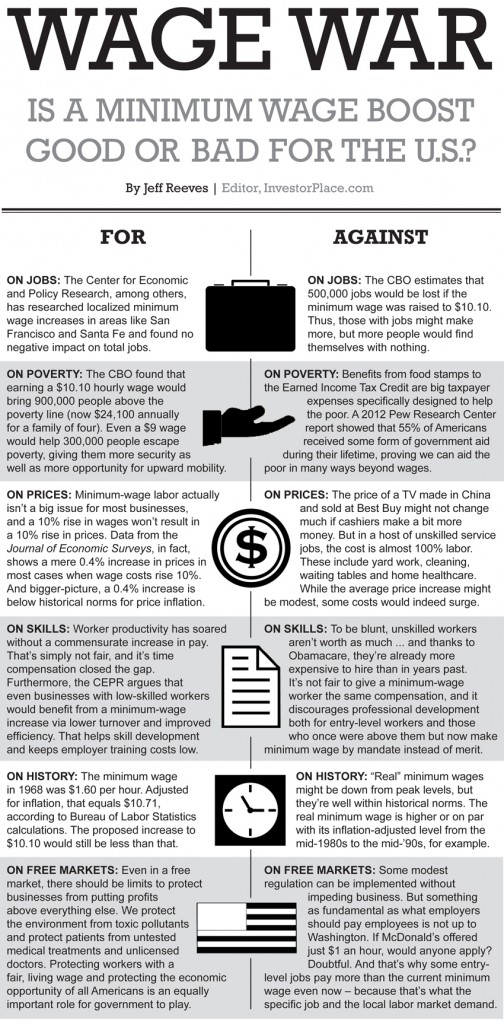
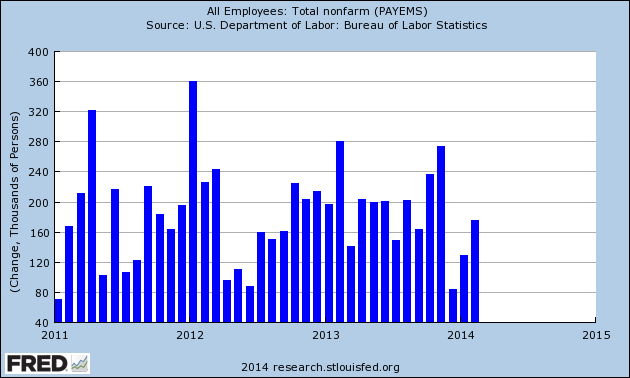
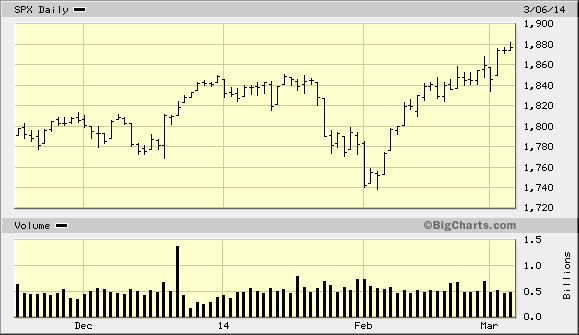
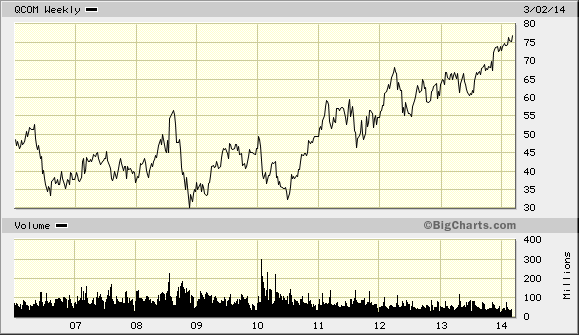
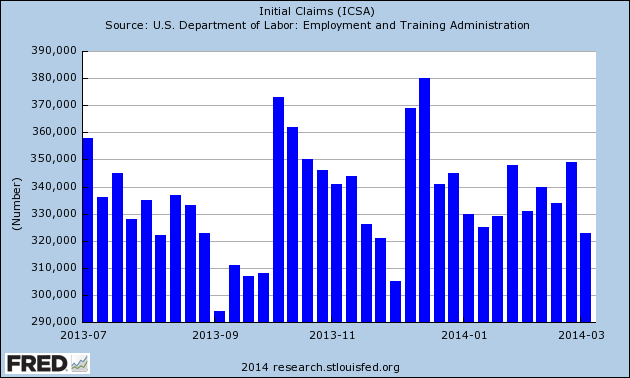
 Eddy Elfenbein is a Washington, DC-based speaker, portfolio manager and editor of the blog Crossing Wall Street. His
Eddy Elfenbein is a Washington, DC-based speaker, portfolio manager and editor of the blog Crossing Wall Street. His